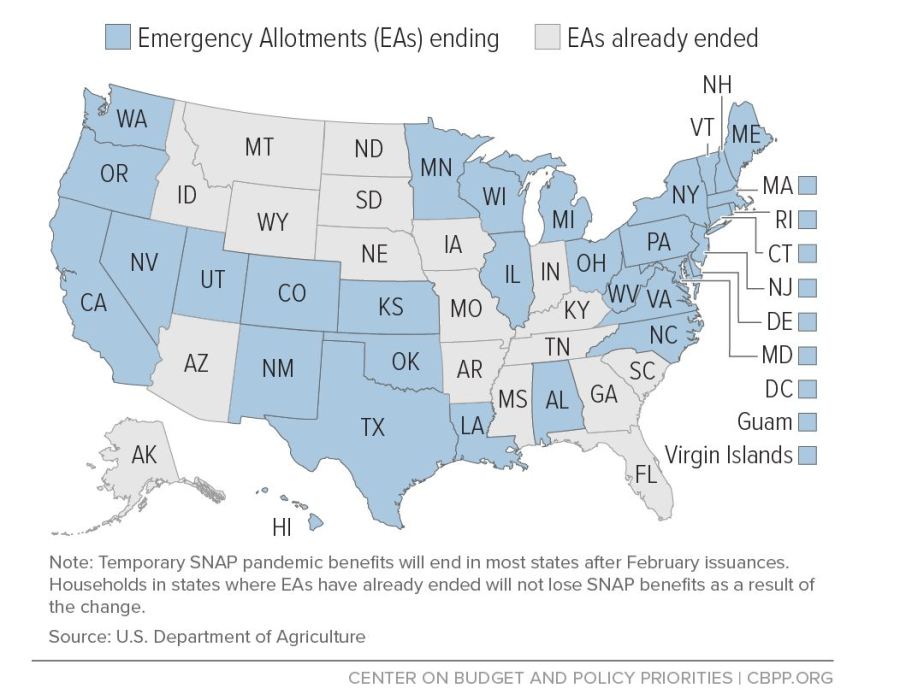Multiple California households will lose out on extra money from the Supplemental Nutrition Assistance Program (SNAP) as the additional benefits allocated during the COVID-19 pandemic end on March 1.
On average, California households that use SNAP benefits, also known as CalFresh, to purchase grocery items will miss out on an extra $163 a month, according to a report from the Center on Budget and Policy Priorities.

Families across the United States who benefit from this program, will lose out on an average of $95 a month for groceries. Other factors, such as family size and income, could result in a larger benefit reduction, according to the report.
Millions of Californians risk losing their Medi-Cal coverage by April as another pandemic-era policy concludes.
Congress and Former President Donald Trump enacted the temporary SNAP Emergency Allotments (EA) in March 2020 as a way to “address temporary food needs” during the pandemic. The measure was a part of the Families First Coronavirus Response Act.
The law gave the United States Department of Agriculture (USDA) authority to “approve states’ requests for EAs for as long as the federal government’s public health emergency was in effect and the state had issued an emergency or disaster declaration,” according to the report.
California’s coronavirus emergency ends Tuesday and the federal public health emergency ends April 11.
Other pandemic-era SNAP benefits that are set to expire after the federal public health emergency ends:
-College students who received SNAP benefits and otherwise wouldn’t qualify for the program will no longer receive that assistance.
-The USDA’s ability to help states “manage their workloads, process new applications, and keep eligible households connected to SNAP” will end. The Food and Nutrition Service will be able to assist states under a different measure.
-Able-bodied adults with no children or disabilities must adhere to a three-month time limit before their benefits expire.
While COVID-19 cases have decreased nationwide, Americans are losing the extra SNAP benefits while dealing with expensive food prices, thanks to high inflation rates.
In November, the national average price of eggs was $3.59, up from $1.72 a year earlier.
While SNAP benefits are decreasing, recipients should know that:
-The benefits decrease won’t affect your eligibility for benefits. Benefits will still be disbursed until the end of your certification period.
-SNAP benefits may increase if you have experienced a decrease in income, an increase in certain expenses, or if someone in your household, who is 60 years old or older, has a disability or medical expenses that are more than $35 a month.






















